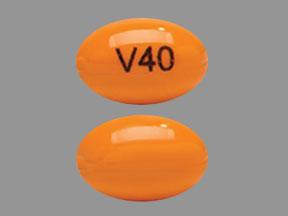Myorisan Disease Interactions
There are 5 disease interactions with Myorisan (isotretinoin).
Retinoids (applies to Myorisan) intracranial hypertension
Major Potential Hazard, High plausibility.
The use of retinoids has been associated with cases of pseudotumor cerebri (benign intracranial hypertension). Early signs and symptoms include papilledema, headache, nausea and vomiting, and visual disturbances. Patients who experience symptoms of this disorder while on retinoid therapy should be referred to a neurologist. If the diagnosis is confirmed, the retinoid should be discontinued permanently.
References
- "Product Information. Accutane (isotretinoin)." Roche Laboratories PROD (2001):
- "Product Information. Soriatane (acitretin)." Roche Laboratories PROD (2001):
Retinoids (applies to Myorisan) psychiatric disorders
Major Potential Hazard, Moderate plausibility. Applicable conditions: Depression, Psychosis
The use of retinoids, primarily isotretinoin, has been associated with causing depression, psychosis and rarely, suicidal ideation. Therapy with retinoids should be administered cautiously in patients with preexisting psychiatric conditions or depression. In addition to withdrawal of therapy, evaluation and follow-up may be necessary in affected patients.
References
- "Product Information. Accutane (isotretinoin)." Roche Laboratories PROD (2001):
- "Product Information. Soriatane (acitretin)." Roche Laboratories PROD (2001):
Isotretinoin (applies to Myorisan) osteoporosis
Moderate Potential Hazard, Moderate plausibility.
Isotretinoin may have a negative effect on bone mineral density in some patients. Clinical trials have shown BMD declines in adolescents during a 20 week treatment. Therefore, physicians should use caution when prescribing isotretinoin in patients with a history of childhood osteoporosis, osteomalacia, or other disorders of bone metabolism.
References
- "Product Information. Accutane (isotretinoin)." Roche Laboratories PROD (2001):
Retinoids (applies to Myorisan) elevated serum triglycerides
Moderate Potential Hazard, High plausibility. Applicable conditions: Alcoholism, Hyperlipidemia, Diabetes Mellitus, Obesity
The use of retinoids is associated with elevations in serum triglycerides and cholesterol, and decreases in HDL. In addition to cardiovascular risks, elevation of serum triglycerides to greater than 800 mg/dL has been associated with fatal fulminant pancreatitis. Patients at increased risk for developing hypertriglyceridemia during retinoid therapy include those with diabetes mellitus, obesity, high alcohol consumption, or a family history of these conditions. Blood lipid determinations should be performed prior to initiation of therapy and at 1- to 2- week intervals until the lipid response to the drug is established (usually 4 to 8 weeks). Patients with preexisting hyperlipidemia may require closer monitoring during retinoid therapy, and adjustments made accordingly in their lipid-lowering regimen.
References
- "Product Information. Accutane (isotretinoin)." Roche Laboratories PROD (2001):
Retinoids (applies to Myorisan) liver disease
Moderate Potential Hazard, Low plausibility.
The use of retinoids has been associated with elevations in liver enzymes and toxic hepatitis. Therapy with retinoids should be administered cautiously in patients with liver disease. Monitoring liver enzymes is recommended in these patients.
References
- "Product Information. Accutane (isotretinoin)." Roche Laboratories PROD (2001):
- "Product Information. Soriatane (acitretin)." Roche Laboratories PROD (2001):
Myorisan drug interactions
There are 130 drug interactions with Myorisan (isotretinoin).
Myorisan alcohol/food interactions
There are 3 alcohol/food interactions with Myorisan (isotretinoin).
More about Myorisan (isotretinoin)
- Myorisan consumer information
- Check interactions
- Compare alternatives
- Reviews (10)
- Drug images
- Side effects
- Dosage information
- During pregnancy
- Drug class: miscellaneous antineoplastics
- Breastfeeding
- En español
Related treatment guides
Drug Interaction Classification
| Highly clinically significant. Avoid combinations; the risk of the interaction outweighs the benefit. | |
| Moderately clinically significant. Usually avoid combinations; use it only under special circumstances. | |
| Minimally clinically significant. Minimize risk; assess risk and consider an alternative drug, take steps to circumvent the interaction risk and/or institute a monitoring plan. | |
| No interaction information available. |
Further information
Always consult your healthcare provider to ensure the information displayed on this page applies to your personal circumstances.


